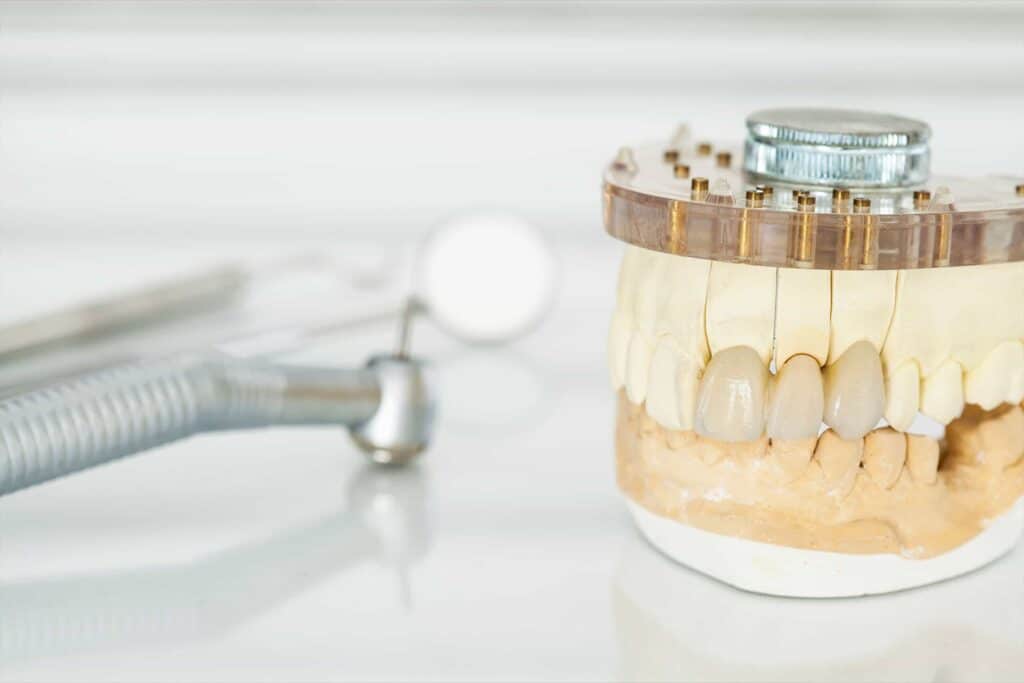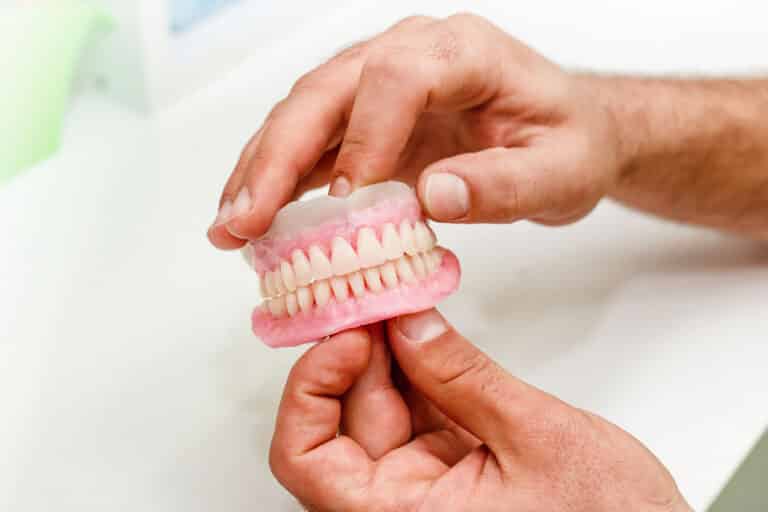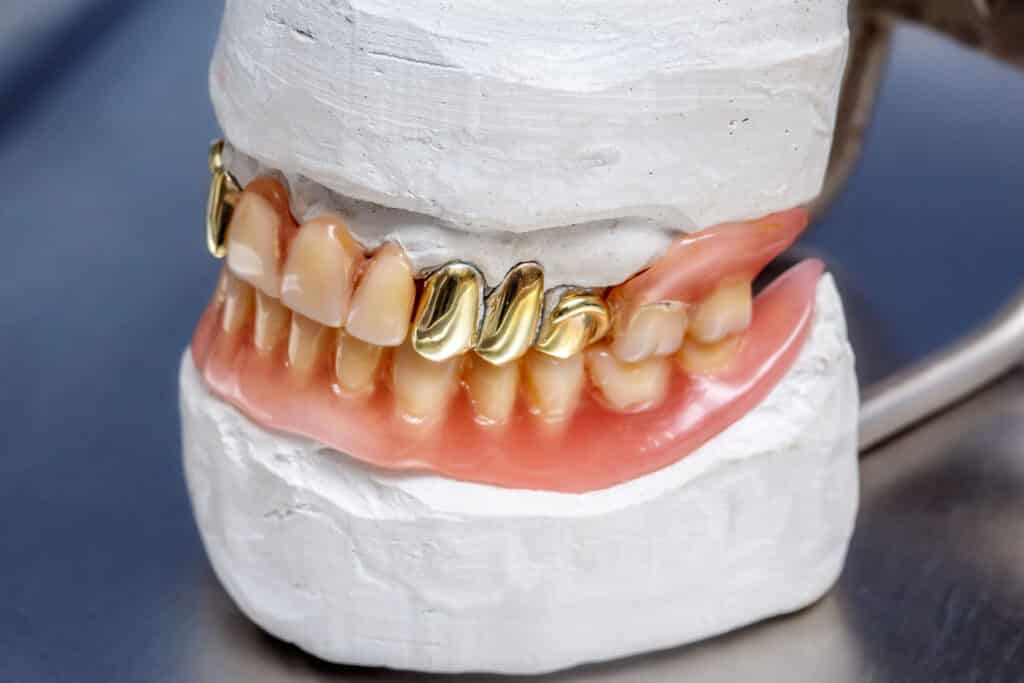A painful roof of the mouth can be very uncomfortable. Several things could be causing this discomfort and some are more serious than others. Here’s a look at some of the most common causes of a painful palate and what you can do to find relief.
The roof of your mouth is covered by robust tissue but, like all skin, is susceptible to various types of trauma and burns. The gums on the roof of your mouth are very durable and even have some scattered taste buds on the soft palate1https://pubmed.ncbi.nlm.nih.gov/294117/.
The roof of your mouth can be injured in several ways. If the top of your mouth is damaged, you may experience pain, swelling, and redness. You may also have a difficult time swallowing or speaking. If any of these symptoms are debilitating enough to where you cannot go about your day, seem professional help.
Why is the Roof of My Mouth Sore?
Sores, or ulcers, can form on the mucous membrane when damaged by an injury or irritation. Some form spontaneously while others are directly caused by some type of event.
Most sores and injuries heal within two weeks without treatment. However, if you have a severe sore or if it does not heal with time, you may need to see a doctor. Your doctor can prescribe medication or treatment to help speed up the healing process. Abnormal pain or duration may signify an injury or infection that requires treatment.
Your mouth may be sore because of:
- Trauma
- Burns
- Pathology
- Gingivitis
- Periodontitis
- Canker sores (uncommon on the roof of mouth)
- Ill-fitting prosthesis (dentures)
What Could Cause the Soreness?
There are many possible causes of a sore roof of the mouth, including:
- Trauma (eating tough/crunchy foods): Eating hard or crunchy foods can cause trauma to the top of your mouth. This can lead to pain, swelling, and redness. This is one of the most common causes and almost never requires any intervention, just time to heal.
- Burns (temperature): Hot foods can burn the top of your mouth, leading to severe pain. With the exception of third degree burns, most temperature burns heal with time.
- Chemical burns: Exposure to cleaning products can cause a chemical burn on the roof of your mouth. This can lead to pain, swelling, and redness. There are also certain foods that are acidic and/or contain chemicals that can irritate the mouth such as pineapples.
- Pathology: The herpes simplex virus can cause illness on the roof of the mouth. This virus is the same one that causes cold sores. If the gums near the teeth are especially sore, it may be due to periodontal disease or severe gingivitis. Although rare, serious pathology such as oral cancer can cause soreness on the roof of the mouth.
- Infection: A bacterial, viral, or fungal infection can cause a roof of the mouth to be sore.
- Impacted food: Sometimes foods, such as stringy sinew of steaks or even fish bones, can get lodged in the gums or between the teeth. This can cause a lot of soreness and discomfort.
- Allergy: An allergic reaction, either topically or systemically, can cause a sore roof of the mouth.
- Canker sores: Canker sores are small, painful sores that can form on the roof of your mouth.
- Blocked salivary glands: Although uncommon on the roof of the mouth, blocked salivary glands can swell up and cause pain.
Side effects of chemotherapy or radiation therapy: Sometimes cancer treatment can result in sores in the mouth. If this occurs, prescription mouth rinses can be an effective palliative treatment.
Can Cancer Cause Your Mouth to Be Sore?
Mouth cancer can cause a sore roof of the mouth, but this is rare. A sore that does not heal for long periods of time (well over two weeks) may be an indication of something more serious such as cancer. However, self diagnosis of cancer should not be the first thing to think of. That being said, if your sore isn’t healed for over a month, you should see a doctor.
Since cancer takes a long time before severe symptoms can manifest, it’s essential to go for regular checkups. This is the best way cancer can be detected early, and treatment can be started immediately.
How Can I Treat a Sore Mouth?
Over-the-counter mouthwashes, particularly antiseptic ones, can help clean the roof of your mouth and speed up the healing process. However, there are other things you can do to help treat or heal a sore mouth quickly. They include;
- Drink plenty of fluids: Drinking plenty of fluids will help keep your mouth moist and can help relieve pain.
- Use a saline rinse: A salt water rinse can help cleanse your mouth, relieve pain and speed up healing.
- Avoid acidic, spicy, or crunchy foods: Acidic or spicy foods can aggravate a sore mouth. Crunchy foods can continue to traumatize the roof of the mouth.
- Avoid smoking: Smoking can slow down healing. Pausing or quitting smoking can help speed the healing process.
- Time: Perhaps the best way to heal a vast majority of injuries to the roof of the mouth is to give it time to heal.
While most pains and sores resolve by themselves by keeping the area clean and giving it time, there may be times when professional intervention is required. The solution may be as simple as a prescription mouthrinse such as chlorhexidine or ‘magic mouthwash’ (which contains a variety of ingredients such as Maalox and lidocaine) or it may require surgical intervention. If you are unsure, seek professional help such as your local dentist.
Was this post helpful?
References
- 1https://pubmed.ncbi.nlm.nih.gov/294117/





